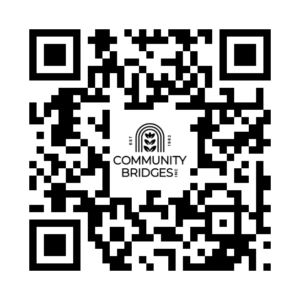Families – What to Expect
About Involuntary Psychiatric Treatment
In the State of Arizona, Arizona Revised Statutes (A.R.S) Title 36 (T36) Chapter 5 allows any responsible person to complete an Application for an Involuntary and Emergency Evaluation for a person who, as a result of a mental disorder, is a danger to self or others, or a person with a persistent or acute disability or grave disability.
You can receive assistance in completing these Applications at a Community Bridges (CBI) Screening Agency, which is listed below by County. If you believe someone is in immediate life-threatening danger, call 911.

Involuntary Application Process
Once these Applications have been submitted to a Screening Agency (see below for CBI Screening Agencies), they will be reviewed by a Psychiatrist or Psychiatric Nurse Practitioner. If the information in the Application meets the criteria, as defined by A.R.S. Title 36 Chapter 5, the individual will be brought to the screening agency for a psychiatric evaluation, and treatment planning when additional treatment is needed. These additional treatment services may include voluntary treatment or continued involuntary services.
Voluntary services available within CBI include outpatient, residential, and inpatient services, among other more specialized services. Continued involuntary services may ultimately lead to ongoing court-ordered psychiatric treatment. It is the goal of CBI to provide the most comprehensive and appropriate care without unnecessary restriction, this means those capable of safely participating in voluntary services will be afforded that opportunity while in care with CBI. In some cases, a patient’s care may continue with a transfer to a non–CBI program.

About CBI Involuntary Services
For more information or assistance, on this process within Community Bridges, please call the number listed below with your associated County. In multiple locations, you can expect to speak with a Family Liaison who is part of the staff at Community Bridges and has personal experience supporting their own loved one through behavioral health treatment. The Family Liaison Dedicated Phone is available 24 hours. If a Family Liaison is not available, there will still be expert staff available to assist you.
In order to get information about your loved one, they will have to provide written permission to staff to share this information. In the event this permission is not granted, staff will still be able to provide generalized information about programs and care with CBI, and will invite your loved one to provide permission for information sharing. If for any reason you are not satisfied with the assistance you received, please ask to speak with an Operations Supervisor or Administrator.
Arizona Programs
Community Psychiatric Emergency Center
358 E Javelina Ave Mesa, AZ 85210
- General Number: 480–507–3180
- Family Liaison: 480–576–7296
- Patient Advocate: 480–716–4939
West Valley Access Point
824 N 99th Ave Avondale, AZ 85323
- General Number: 623–907–6520
- Family Liaison: 602–848–4574
Casa Grande
675 E Cottonwood Ln Casa Grande, AZ 85122
- General Number: 520–426–0088
Yuma County
3180 E 40th St Yuma, AZ 85365
- General Number: 928–373–6763
Additional information & resources
Information
Additional information on Involuntary evaluation and treatment is available on the AHCCCS/Arizona Medicaid website, which includes a one–hour training video:
azahcccs.gov/Members/BehavioralHealthServices/COE.html
For additional resources, outside of CBI regarding Crisis Care and accessing crisis care within Arizona: azahcccs.gov/BehavioralHealth/crisis.html
Family and Natural Support Feedback Survey
Community Bridges Inc. Family and Natural Support Feedback Survey LINK

